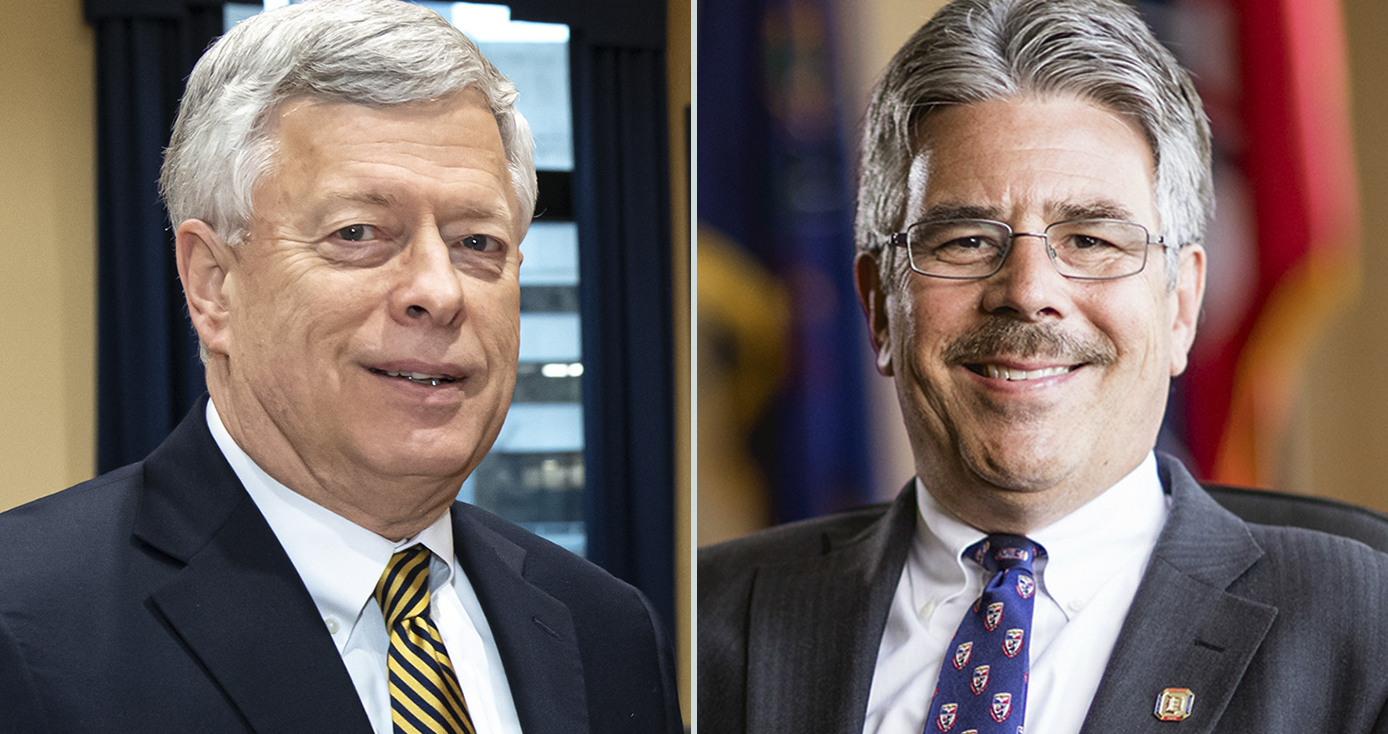
Subscribe to Pittwire Today
Get the most interesting and important stories from the University of Pittsburgh.‘Governing in Crisis’ Series Launches May 19
As local, state and federal governments navigate the unique challenges presented by the COVID-19 crisis, the University of Pittsburgh’s Institute of Politics (IOP) and the Dick Thornburgh Forum for Law and Public Policy have introduced a series of discussions designed to bring insight into the process.
“Governing in Crisis: Preserving Democracy, the Rule of Law and American Values,” is an ongoing virtual discussion focused on key issues surrounding public health, the economy and the state of government and public institutions during the coronavirus pandemic. Chancellor Emeritus Mark Nordenberg, who serves as chair of IOP and director of the Thornburgh Forum, will interview regional and national civic leaders about the pandemic’s impacts—not only on public health and the economy, but on basic governance processes.
Episodes will appear on Pittwire Live and on the Institute of Politics YouTube channel.
“The series is intended to help policymakers and interested citizens, whatever their position or political leanings, to better understand the governance issues that continue to arise. It is offered in the hope that we will emerge from this crisis not only with our economy restored and with our basic values intact, but on a committed journey that will take us to an even better America together,” said Nordenberg.
The first installment kicks off at 10 a.m. on Tuesday, May 19, with a discussion on mistakes and overreaching by governments during times of crisis with Duquesne University President Ken Gormley. Allegheny County Executive Rich Fitzgerald will be the featured guest for the second installment, which will be posted to Pittwire Live and the IOP YouTube channel on May 26.
Gormley, a constitutional law scholar and author, noted that legal solutions such as the Espionage Act, which strongly curtailed free speech during World War I, and internment of Japanese American citizens during World War II, were both signed off by courts at the peak of a crisis and repealed years later as improper due to civil and human rights implications.
“We’ve seen a lot of these examples during the most pressure filled times, when the government takes such steps and lives to regret it,” Gormley said. “I’m grateful that Chancellor Emeritus Nordenberg is addressing these important topics through his virtual series, which could not be more timely.”


